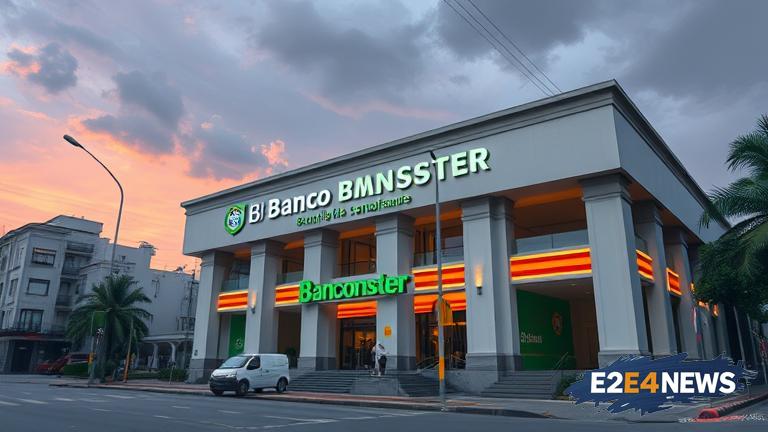The Brazilian banking sector is bracing itself for a potential shakeup as Banco Master, a mid-sized bank, faces the possibility of a breakup. The bank’s financial instability has raised concerns among regulators, who are weighing the risks of allowing it to continue operating. The Central Bank of Brazil has been closely monitoring Banco Master’s situation, and a decision on its fate is expected soon. If the bank is broken up, it would be a significant development in the country’s banking sector, which has been experiencing a period of consolidation in recent years. Banco Master has been struggling with financial difficulties, including a significant decline in its capital reserves and a rise in non-performing loans. The bank’s troubles have been exacerbated by the economic downturn in Brazil, which has affected the entire banking sector. Despite efforts to recapitalize and restructure, Banco Master has been unable to recover, leading to speculation about its future. The Central Bank of Brazil has been working closely with the bank’s management to find a solution, but a breakup is now seen as a possible outcome. The potential breakup of Banco Master would have significant implications for the Brazilian banking sector, including the potential for job losses and disruption to customers. The bank’s assets and liabilities would need to be transferred to other institutions, which could be a complex and time-consuming process. The Brazilian government has been keen to stabilize the banking sector, which has been affected by the country’s economic woes. The potential breakup of Banco Master is seen as a necessary step to maintain stability in the sector. The Central Bank of Brazil has been taking a proactive approach to addressing the challenges facing the banking sector, including implementing measures to strengthen regulation and supervision. The bank’s breakup would also have implications for the country’s economy, which is still recovering from a deep recession. The Brazilian government has been working to implement economic reforms, including measures to improve the business environment and attract foreign investment. The potential breakup of Banco Master is seen as a test of the government’s ability to manage the banking sector and maintain stability. The bank’s situation has also raised questions about the effectiveness of the country’s financial regulation and supervision. The Central Bank of Brazil has been criticized for not acting sooner to address the bank’s financial difficulties. The potential breakup of Banco Master is a reminder of the challenges facing the Brazilian banking sector, which has been affected by a combination of economic and regulatory factors. The bank’s situation is being closely watched by investors and analysts, who are keen to see how the situation unfolds. The potential breakup of Banco Master would be a significant development in the Brazilian banking sector, and would have implications for the country’s economy and financial stability. The Central Bank of Brazil is expected to make a decision on the bank’s fate soon, which would bring an end to the uncertainty surrounding its future. The bank’s breakup would be a complex process, involving the transfer of assets and liabilities to other institutions. The Brazilian government would need to work closely with the Central Bank of Brazil to ensure a smooth transition and minimize disruption to customers. The potential breakup of Banco Master is a reminder of the importance of effective financial regulation and supervision in maintaining stability in the banking sector. The Brazilian government has been working to strengthen regulation and supervision, including implementing measures to improve the transparency and accountability of banks. The potential breakup of Banco Master would be a significant test of the government’s ability to manage the banking sector and maintain stability. The bank’s situation has raised questions about the effectiveness of the country’s financial regulation and supervision, and the potential breakup would be a reminder of the challenges facing the Brazilian banking sector.
